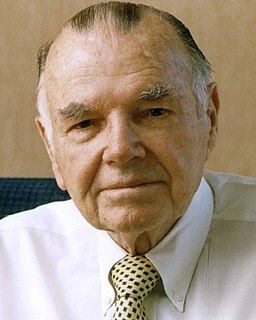A Quote by Mary Roach
In my experience, the most staunchly held views are based on ignorance or accepted dogma, not carefully considered accumulations of facts. The more you expose the intricacies and realtities of the situation, the less clear-cut things become.
Related Quotes
Among the innumerable mortifications which waylay human arrogance on every side may well be reckoned our ignorance of the most common objects and effects, a defect of which we become more sensible by every attempt to supply it. Vulgar and inactive minds confound familiarity with knowledge and conceive themselves informed of the whole nature of things when they are shown their form or told their use; but the speculatist, who is not content with superficial views, harasses himself with fruitless curiosity, and still, as he inquires more, perceives only that he knows less.
Progress is achieved by exchanging our theories for new ones which go further than the old, until we find one based on a larger number of facts. ... Theories are only hypotheses, verified by more or less numerous facts. Those verified by the most facts are the best, but even then they are never final, never to be absolutely believed.
We have Islamic rebels [in Syria] who've been eating the hearts or organs of their enemies. We have priests that have been killed. We have Christian villages that have been razed by Islamic rebels. We have Islamic rebels who say they don't recognize Israel and would just as soon attack Israel as [Bashar] Assad. So really, I see no clear-cut American interest, and I'm afraid that sometimes things unravel, and the situation could become less stable and not more stable.
Capitalism is based on the principle that everything has to be privately owned; it can't be held in common. There is even a dogma, which is today called, the "tragedy of the commons" which holds that if things are held in common they are going to be destroyed. If they're privatized, like you give them to Bechtel or Monsanto or ExxonMobil, then they'll be preserved because that's the capitalist's religion.
The more stringent the rules and the more limiting they are, the more the poet and writer is forced to resort to special techniques and intricacies to escape them. And these techniques and intricacies adorn the writing and make it more beautiful. But, in the modern world, linguistic intricacies and embellishments do not attract much attention anymore, and the more sincere and intimate the relationship between a work and its reader, the better.



































